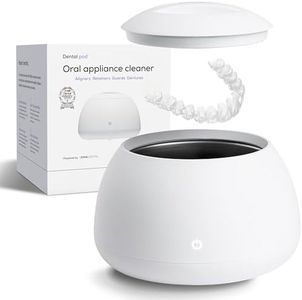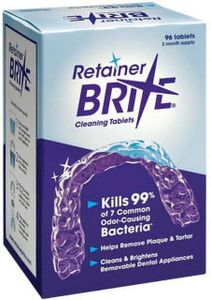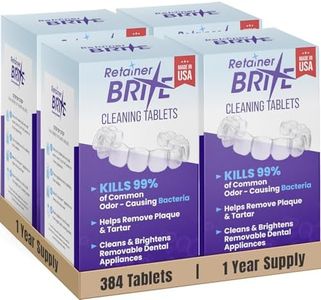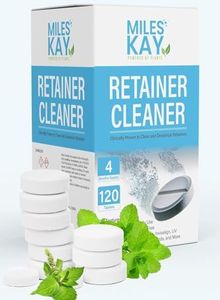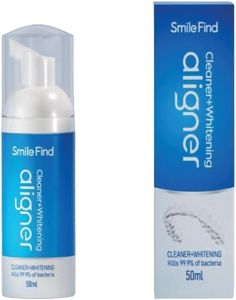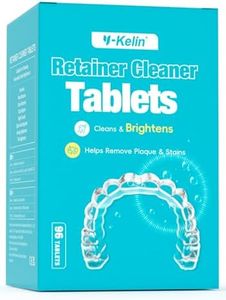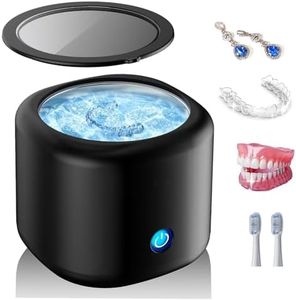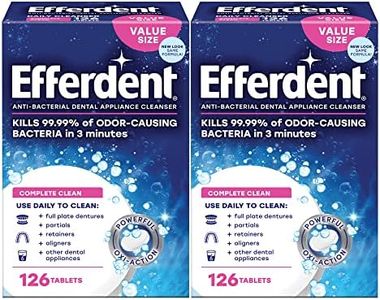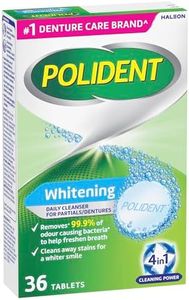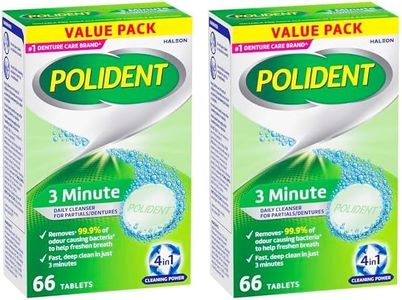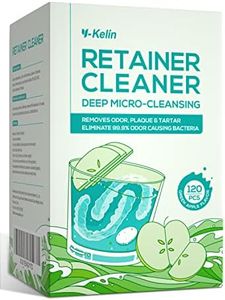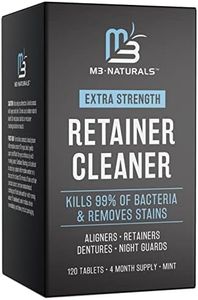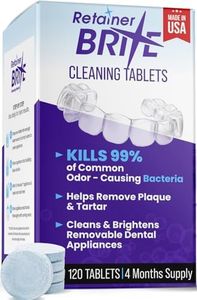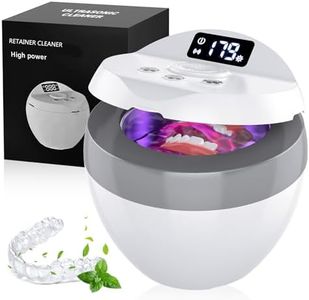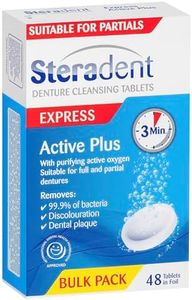We Use CookiesWe use cookies to enhance the security, performance,
functionality and for analytical and promotional activities. By continuing to browse this site you
are agreeing to our privacy policy
10 Best Dentures Cleaners
From leading brands and best sellers available on the web.By clicking on a link to a third party's website, log data is shared with that third party.
Buying Guide for the Best Dentures Cleaners
Choosing the right dentures cleaner is important for maintaining oral hygiene and prolonging the life of your dentures. Dentures require special care to remove stains, bacteria, and odor without damaging the material. When selecting a dentures cleaner, it helps to understand the cleaning process, the ingredients involved, and how they affect both your dentures and the inside of your mouth. Taking the time to match a product to your needs can make daily cleaning easier, more effective, and safer.Form (Tablet, Powder, Gel, Liquid)The form of dentures cleaner refers to the physical type you will be using – tablets, powders, gels, or liquids. This matters because each form offers a different cleaning experience and level of convenience. Tablets are typically dropped in water, creating a cleaning solution, while powders may need to be mixed, gels are often brushed on, and liquids can be used for soaking. If you prefer a no-fuss solution, tablets and liquids are often the easiest, while gels provide more control for spot cleaning. Your personal routine and comfort with different cleaning tasks should help you decide which form best fits your lifestyle.
Cleaning Effectiveness (Antibacterial & Stain Removal)This spec measures how well a cleaner can remove bacteria, stains (from foods, drinks, or tobacco), and odors. This is crucial because dentures can harbor bacteria leading to bad breath and health issues, and can easily become discolored. Some products focus mainly on disinfecting, while others are tailored for tough stains or odor control. If you’re prone to staining or smoke/drink coffee frequently, look for a product emphasizing stain removal. If your main concern is hygiene, choose one marketed for antibacterial action.
Compatibility with Denture MaterialDentures are made from different materials like acrylic, metal, or flexible resins. Not all cleaners are safe for every type. Using the wrong cleaner could cause damage or discoloration. Check whether the cleaner is labeled as safe for your denture’s material. If you have partials with metal parts, ensure the product is safe for metal as well. Always confirm compatibility to avoid harming your dentures.
Soaking Time / Cleaning DurationSoaking time or cleaning duration tells you how long the product takes to work. Some cleaners are fast-acting and promise results in only a few minutes, while others require overnight soaking for deep cleaning. If you’re looking for a quick clean, pick a fast-acting formula. For more thorough cleaning or if you clean dentures overnight, a longer-duration cleaner may be more suitable.
Odor and TasteAfter using a dentures cleaner, some products may leave a lingering odor or taste. This can be unpleasant or even make your dentures uncomfortable to use. If you are sensitive to tastes or smells, look for fragrance-free or mild-flavor options. Your comfort with residual taste and smell will guide which product you’ll find most pleasant in daily use.
Safety/Non-AbrasivenessA good dentures cleaner should be effective while being non-abrasive and gentle on both the denture and your mouth. Some strong cleaners can cause surface wear over time or may be harsh if any residue is left. Products labeled as non-abrasive or safe for daily use are best to avoid long-term damage. If you have sensitive gums or mouth tissues, prioritize gentle and hypoallergenic options.
